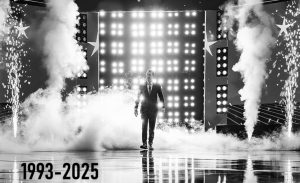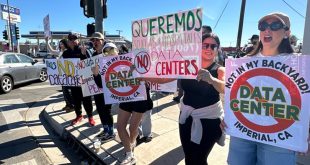 By: Ellie Burgueño, Journalist & Writer
By: Ellie Burgueño, Journalist & Writer
I did not know about Charlie Kirk until the day of his assassination. Perhaps we had published something about him in the past, but he had never caught my attention. As a journalist and writer, I don’t consider myself left or right. I work hard to remain objective and unbiased in my writing. I rarely speak about my personal faith, because I don’t consider myself religious in the institutional sense, though I do carry a strong faith that has never left me.
On that day, I was sitting at my desk when the first alerts about the shooting reached us. The news came fast. Almost instinctively, I began researching him, his work, his message, and the influence he carried, especially among the youth. What I found resonated with me in ways I did not expect. His story forced me to look back at my own roots.
I was born into a Christian family where faith was not just belief but a way of life. My grandfather was a founder of the Church of God, and my uncles carried on the legacy as pastors—one now serving as the national bishop of the Church of God in the United States. My parents lived their faith in song, harmonizing together in church while my father strummed the guitar, and I joined him, singing since I was six years old, all of my sisters and mom used to sing in Church. From my earliest memories, I witnessed what many would call miracles—moments of healing, transformation, and providence that shaped my understanding of God’s presence in everyday life.
My father was a man of wisdom, compassion, honesty, and generosity. He worked hard and gave us a childhood full of love and memorable experiences. In my teenage years, I attended youth camps across Arizona, where I witnessed spiritual awakenings among my peers. I took ministerial training courses, and in high school I began teaching Bible studies during lunch. At eighteen, I started organizing youth conferences, bringing in prominent speakers to inspire the next generation.
I thought that would be my life’s calling. But life has a way of redirecting us. The hurdles came in many forms—education, responsibilities, work, a wrong partner, the challenges of adulthood, and the relentless demands of daily life. These forces led me down a different path. I may have stepped away from my consecration, but God’s guidance never wavered. Eventually, I found myself drawn to journalism and writing. In hindsight, perhaps that was always my calling—to use my voice, my pen, and my platform to touch lives, inspire thought, and create meaningful change.
That is why, as I learned more about Charlie Kirk’s mission, I felt an unexpected conviction rising within me. His passion for the youth echoed the passion I once had. His sense of purpose reminded me of the calling I never fully abandoned. It made me realize that perhaps it is time to share more openly what I know to be true—not from tradition, but from lived experience.
Kirk’s assassination, like others before him, forces us to confront the darkness of our time. America has long been scarred by political violence. From Abraham Lincoln to John F. Kennedy, from Martin Luther King Jr. to Robert Kennedy, history reminds us of the high cost of words and convictions. More recently, we have witnessed the shooting of Congresswoman Gabrielle Giffords, the attack on Republican lawmakers at a baseball field, and the brutal assault on Paul Pelosi. And now, in 2025, the murder of Charlie Kirk during his “American Comeback Tour.” He was only 31.
Yet beyond the tragedy of his death, what stands out is the remarkable character of Charlie Kirk himself. He was a visionary leader who took Turning Point USA from its humble beginnings to the influential organization it is today. His talent for leadership was matched by his compassion—he was someone people could rely on, a mentor and friend, a good husband and father, who inspired loyalty and trust. He was brave, standing firmly for his beliefs, fearless in speaking truth to power, and wise in his approach to both strategy and people. At the same time, he carried himself with a presidential presence, commanding respect not through intimidation but through integrity, intellect, and conviction. He embodied the rare combination of courage, wisdom, and heart that defines true leadership.
The tragedy, then, is not only in the act of violence itself but also in the reactions that followed. Too many celebrated his death online, mocking and justifying the killing of a man whose weapon was his voice. What does it say about us as a society when murder is cheered? When disagreement becomes justification for death? That is not democracy. That is moral collapse.
The Bible speaks clearly: without love, even the greatest knowledge or faith is meaningless. “Love is patient, love is kind. It does not envy, it does not boast, it is not proud… it always protects, always trusts, always hopes, always perseveres.” These words ring louder today than ever. We are living in a moment when families are breaking apart, envy and hatred dominate, and dishonesty corrodes trust. Empathy is scarce. Revenge is celebrated. The true crisis is not political—it is spiritual and moral.
At Kirk’s memorial in Glendale, Arizona, thousands gathered to honor him. I didn’t attend in person, but I watched the entire service. The program was called “Building a Legacy.” Politicians spoke, many offering moving tributes. But the most powerful words came from his wife, Erika, who declared publicly: “I forgive that young man.”
 Her words echoed the voice of Jesus on the cross: “Father, forgive them, for they do not know what they are doing.” In a world drowning in anger, her message of forgiveness broke through with astonishing clarity. It was not weakness but strength. Forgiveness is not about forgetting—it is about refusing to allow hate to take root in our hearts.
Her words echoed the voice of Jesus on the cross: “Father, forgive them, for they do not know what they are doing.” In a world drowning in anger, her message of forgiveness broke through with astonishing clarity. It was not weakness but strength. Forgiveness is not about forgetting—it is about refusing to allow hate to take root in our hearts.
What stands out most about Charlie Kirk is that, despite his young age, he had found purpose. He knew why he was here, and he pursued that mission with passion. He believed he was blessed, and he never stopped declaring it—publicly and privately. He wanted to bring others into that light. Those who silenced him with bullets did not understand they were also sparking a movement. His death has forced many, myself included, to stop and reflect on what truly matters.
The prophet Jeremiah once wrote: “Stand at the crossroads and look; ask for the ancient paths, ask where the good way is, and walk in it, and you will find rest for your souls.” Kirk’s death has left us at such a crossroads. We can continue down the path of hatred, division, and violence—or we can return to the old ways: truth, faith, love, and forgiveness.
There are far more commonalities among us than differences, but our blindness keeps us from seeing them. To open our eyes, we must begin to look at one another with love. Only then can we witness revival, bring change, and see hope rise again.
Charlie Kirk is gone, but his vision remains. His life was short, but not wasted. And maybe, just maybe, his death will awaken a lost generation. A generation that must decide: will we continue to celebrate destruction, or will we choose to walk in love?
The choice is ours. And the time is now.


